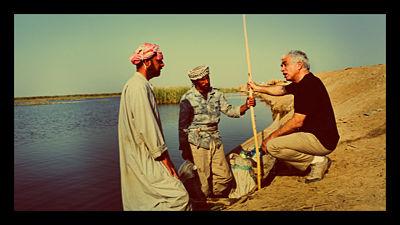Nature Iraq: The One and Only

In a land where so much global attention is focused on its politics, Iraq’s environmental and agriculture issues have been left on the back burner. Until 2003, there was no sustainability or environmental organization that dealt with the dried-up marshlands of Iraq. Saddam Hussein purposefully dried them up to reduce the use of the marshes as hiding spots during his reign. This in turn damaged irrigation systems and the flow of water, almost bringing an end to thousands of years of Iraq’s farming culture.
Azzam Alwash, an Iraqi-American civil engineer and former CEO of Nature Iraq, found himself back in Iraq to tackle this very issue in the early 2000s. “If Iraq does nothing to improve irrigation standards, agriculture is going to die in the place where it started,” Alwash stated. After hefty biological surveys, Alwash and his team began restoring the marshlands and reintroducing sustainable irrigation techniques. Their work was met with constant adversities and even threats from the government. Despite these obstacles, about half of the marshlands have been restored in the past decade and will now become a national park.
Achieving such a success is vital to the economy of Iraq, as many of its people rely on farming for food and livelihood. Alwash’s next project is working with the Syrian and Turkish governments to address the issues of the dams that are being built on the borders of those countries which stop the flow of water to the marshes. While the main goal is to prevent the loss of water, Alwash also sees this as an opportunity to prevent war in the Middle East. Of it, he says, “If we succeed in creating economic ties [between the countries], it’s going to be too difficult to go to war. Borders disappear when ties are strong.”
Nature Iraq, still the only environmental non-profit in Iraq, has expanded since its founding in 2003. It works with global organizations such as the UK’s Darwin Initiative to collect data on biodiversity and educate communities in those areas about the dangers of ignoring environmental issues. It also built the Adobe House on the banks of the Euphrates River to illustrate how people can build low-cost and sustainable housing even in marshlands.
Among all its projects, Azzam Alwash’s organization has proven that no matter the political stability of a country, environmental issues can be addressed. By creating stable communities that will foster a growing economy, it eliminates possible grounds of impoverished people and politicians forming uprisings.
– Deena Dulgerian
Source: Co.EXIST
